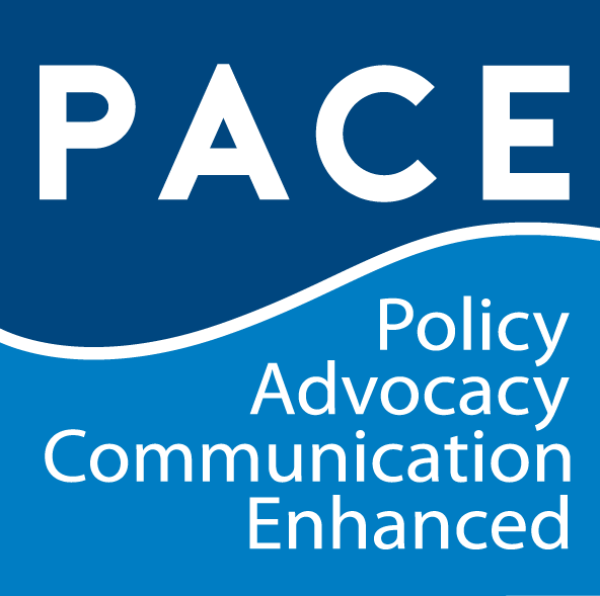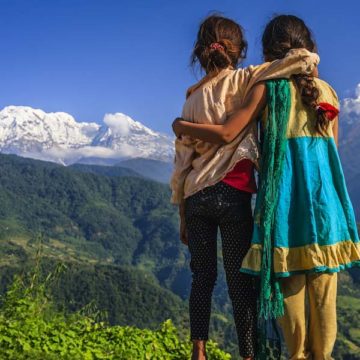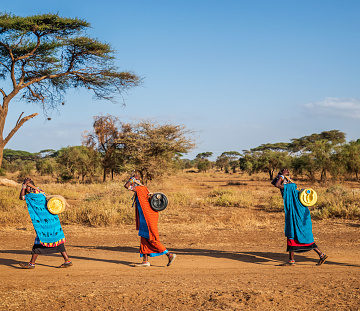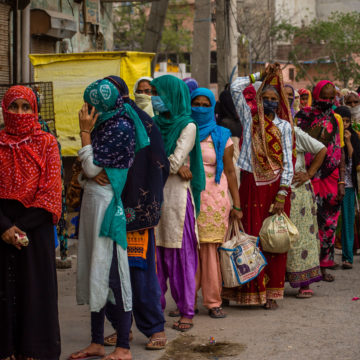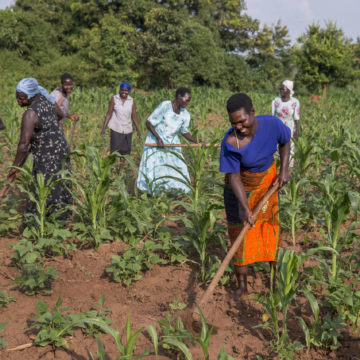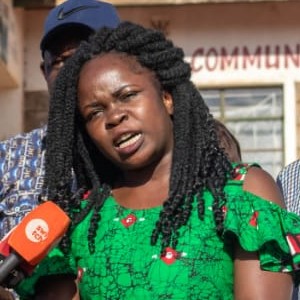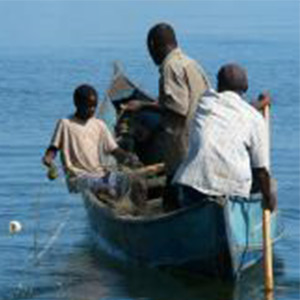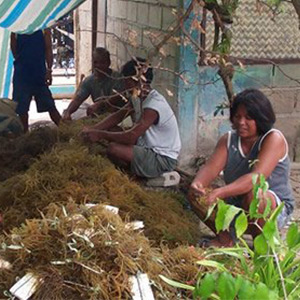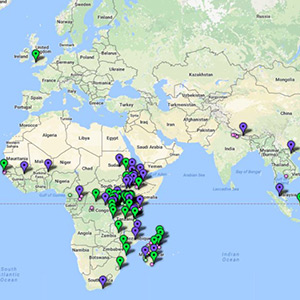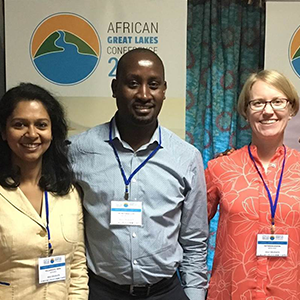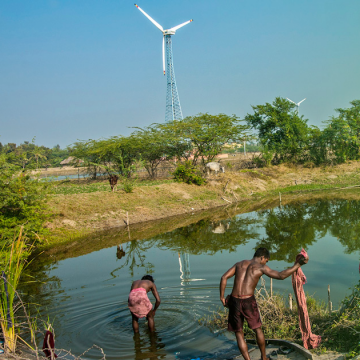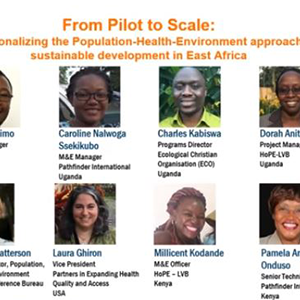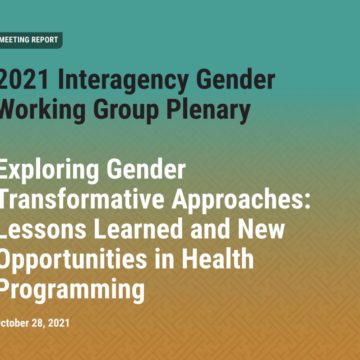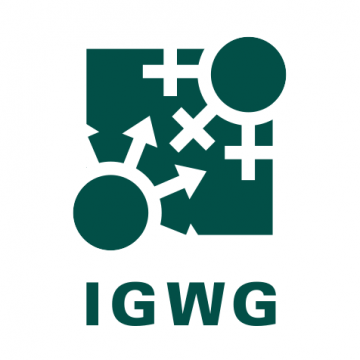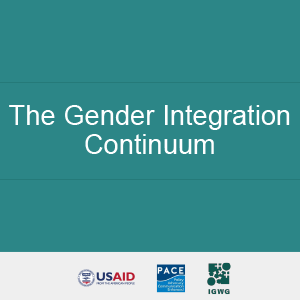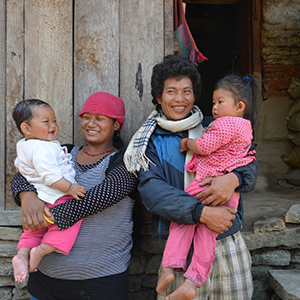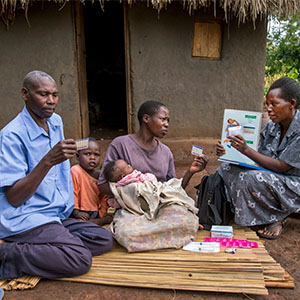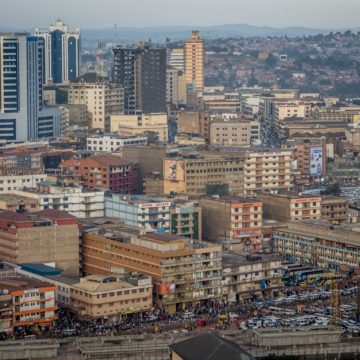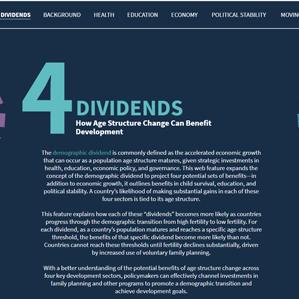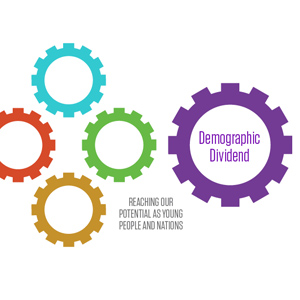PACE connects and galvanizes policy communities that cut across subject areas and sectors. These communities engage stakeholders at the local, national, and global levels to accelerate progress toward achievement of critical health and development goals.
Population, Environment, and Development
PRB’s People, Health, Planet Program conducts research and analysis on pressing population and environment issues. Our findings are produced in non-technical language in a variety of formats in order to reach a broad base of policymakers, project implementers, and interested individuals.
Resilient Future: Climate Financing Strategies for Family Planning Programs
Even as governments recognize the role of family planning in climate adaptation plans, major global adaptation financing funds have not yet included family planning and reproductive health programs in their portfolios. PACE has developed a “How-To” video that outlines four strategies that illustrate where opportunities may be available for family planning programs to be included in multilateral climate funding.
Family Planning’s Multisectoral Impacts: Lessons and Opportunities from the PACE Project
Since 2015, PACE has worked alongside other champions across the globe to integrate population and reproductive health solutions into complex challenges, including climate change and development. This blog post offers insights on the changing environment we have faced since 2015, and showcases PACE’s work to support local and global champions to advance PED approaches.
Family Planning and the Gendered Impacts of Crises on Women: An Effective Tool Across Sectors to Support Women’s Empowerment and Build Resilience to Shocks
Holistic, integrated solutions are key to address the interlinkages of the gendered impacts of crises. Increasing access to voluntary family planning and reproductive health programs, through cross-sectoral approaches such as Population, Environment, and Development (PED), has the potential to mitigate many of the inequitable effects and improve resilience for households and communities in the face of shocks.
20 Essential Resources for Population, Health, and Environment (PHE)
This collection of essential resources, created in partnership with Knowledge SUCCESS, is designed to help program planners, designers, and implementers in a variety of sectors—such as environmental conservation, resilience, food security, nutrition, climate change adaptation, and economic development—understand and explore elements of PHE programs so that they can incorporate this approach into their work.
Success Stories From PACE Youth Advocates for Population, Environment, Development
PACE and partner GOAL Malawi trained ten dynamic youth advocates from across East and Southern Africa on integrated population, environment, and development (PED) approaches and effective evidence-based policy communication in Dec. 2019. For the past nine months, the youth advocates have used their skills to advance integrated development priorities in their communities, with some truly remarkable results.
PHE e-Learning Course
This revised Population, Health, and Environment (PHE) eLearning course will help those interested in integrated approaches to development understand how and why the PHE approach is an effective way for countries to achieve the SDGs, and a means of increasing equity for family planning and health services in remote communities. Available in French and Spanish.
PHE Toolkit
In September 2016, the PACE project launched a completely revised PHE toolkit. The updates include streamlining and reorganizing the structure and modifying the contents to ensure that recent research, evaluations, and other resources are all available.
Population, Health, Environment, and Development Activity Map
This interactive PHE activity map highlights the diverse efforts of organizations working to integrate primary and reproductive health services with environmental conservation and natural resource management projects and programs.
African Great Lakes Conference
In May 2017, PACE served as a lead convener of a for the regional African Great Lakes Conference where key strategies, research, and interventions that linked family planning and environment were shared with a wide conservation audience.
Monthly Global PED Newsletters
PRB is committed to strengthening and expanding the PHE community of practice through its development and dissemination of monthly newsletters.
Africa Webinars
PACE’s PED program provides training and technical assistance to developing country partners, international NGOs, and government agencies in a variety of capacities, including webinars. You can find the complete list of our webinars here.
GENDER COMMUNITIES OF PRACTICE
PACE’s gender work includes moderating the Interagency Gender Working Group (IGWG) website and listserv; editing and publishing materials that guide gender communities of practice globally; and organizing events that apprise development experts of new research and best practices in a wide range of gender issues, including gender-based violence, child marriage, and sex ratio at birth.
2021 IGWG Plenary Meeting Report
Key discussion points that emerged during 2021 IGWG Plenary: “Exploring Gender Transformative Approaches: Lessons Learned and New Opportunities in Health Programming” are synthesized in this meeting report. The report also provides actionable recommendations for donors, decisionmakers, researchers, and program implementers to advance the utilization and integration of gender transformative programming.
IGWG Newsletter
For many years, PACE has strengthened and expanded gender communities of practice through its role in the management of the IGWG weekly listserv that shares the latest in gender and development.
Gender Integration Continuum User's Guide
The User’s Guide is a tool to help new and experienced gender trainers plan, prepare for, and facilitate the Gender Integration Continuum training session. It includes a heavily scripted facilitator guide and helpful processing questions.
Gender-Based Violence Task Force
The GBV Task Force organizes events such as technical updates, plenaries, and brown-bags, and meets periodically to strategize on gaps in needed materials and research related to GBV.
Engaging Boys and Men in Contraception Use and Family Planning: A Slide Deck
This slide deck, funded by USAID through the Policy, Advocacy, and Communication Enhanced for Population and Reproductive Health (PACE) Project, consists of 57 data-driven slides that can be used by advocates, program planners, and funders, to make the case for engaging boys and men in family planning.
DEMOGRAPHIC DIVIDEND
PACE’s cutting-edge analyses and advocacy materials convey the importance of family planning and age structure change to achieving development goals across multiple sectors.
Prioritizing the Demographic Dividend: Subnational Advocacy With District Decisionmakers in Uganda
This fact sheet developed with NPC Uganda highlights four successful strategies to increase investments in voluntary family planning and human capital development among district decisionmakers in Uganda.
Local Progress Toward the Demographic Dividend Threatened by Coronavirus Pandemic
By upending the delivery of health and education services and threatening economic livelihoods, the pandemic has dramatic implications for countries’ progress toward the demographic dividend, as well as other development goals.
Supporting National Advocacy Efforts to Amplify Understanding of the Multisectoral Benefits of Age Structure Change Among Local Decisionmakers
PACE’s new videos, created in collaboration with the National Population Council (NPC) Uganda and NPC Ghana, showcase the countries’ Demographic Dividend Roadmaps, which outline the interventions needed to harness the demographic dividend and achieve Vision 2040 targets.
Four Dividends
PACE’s interactive infographic explores the association between key indicators in health, education, economic growth, and security and age structure.
Which Policies Promote a Demographic Dividend?
PACE’s report synthesizes the findings of a rigorous literature review of specific policy interventions across sectors that explicitly contribute to achieving a demographic dividend.
Demographic Dividend: Reaching Our Potential as Young People and Nations
PACE in collaboration with our youth working group on the demographic dividend, has created an advocacy video intended to engage decisionmakers in understanding the importance of involving young people in the policy process.
